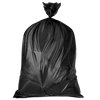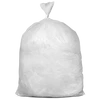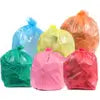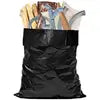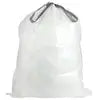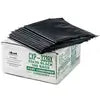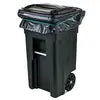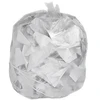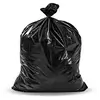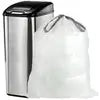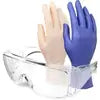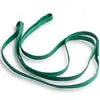Source: 9dream studio/Shutterstock
There are lots of myths out there that are common, but pretty harmless. For example, contrary to popular belief, mice don’t really like cheese very much! In most cases, believing that myth isn’t hurting anyone so long as they aren’t going broke buying expensive cheese to catch mice with.
Recycling myths, unfortunately, aren’t so benign. They affect something that most of us do every day that’s important for the preservation of our planet. It’s vital to know the truth about recycling so that you don’t throw away items that are recyclable, or (worse yet) contaminate your recycling with items that aren’t.Ready to bust some common recycling myths? Let’s get started with one of the most potentially harmful.
- MYTH: It doesn’t matter if you mix your trash and recycling.
- FACT: Mixing trash and recyclables can send all of your recycling straight to the landfill.
Non-recyclable materials are a serious problem for the materials recovery facilities (MRFs) that process your recycling. Removing these materials (referred to as contaminants) takes so much time and so many resources that a load of recycling with a lot of trash in it will often be taken to the landfill instead.
Plastic bags are among the biggest offenders for contaminating recyclables. Almost all recycling services ask customers not to bag their recyclables — just put them straight in the bin instead, or use only a recycling bag that stays in the can to keep it clean.
- MYTH: Plastic bags aren’t recyclable at all.
- FACT: Plastic bags have to be recycled separately at a plastic film drop-off.
Staying on the subject of plastic bags, it’s true that you shouldn’t put them in your curbside recycling bin. But plastic bags are recyclable; they just have to be recycled by themselves at a special drop-off point. You can find one of these points through a recycling search service such as Earth911. Making a little extra effort to recycle your plastic bags can make a big difference for the environment!
- MYTH: Bottles and cans have to be spotlessly clean to be recycled.
- FACT: A quick rinse is generally good enough.
You do need to clean food and beverage residue out of bottles and cans before you recycle them. Most of the time, however, a simple rinse will do the trick. The exception is a container of something like honey or peanut butter, which might need a quick scrub with a sponge. Basically, make an effort to get them clean, but there’s no need to drive yourself crazy scrubbing every last bit out.
Purchase Recycling Bags to Keep Your Home Eco-Friendly!
Source: lovelyday12/Shutterstock
- MYTH: Any type of glass can be recycled.
- FACT: Typically, only glass bottles and jars are recyclable.
Don’t recycle any type of glass other than the bottles and jars used in food and beverage packaging. Types to avoid include:
- Drinking glasses
- Decorative glass
- Window glass
- Heat resistant glass (such as baking dishes or measuring cups)
These other types of glass are made using different processes and treated with chemicals that can make them recycling contaminants. Unfortunately, they need to be thrown away in the garbage and protected by a durable material like a cardboard box or a heavy-duty contractor bag.
- MYTH: Electronic devices can be put on the curb or in a recycling bin.
- FACT: Electronics need to be recycled at a designated electronics recycling drop-off.
A TV or computer on the curb or in the curbside recycling will almost always be taken to the landfill, where it becomes e-waste that can do a lot of damage to the environment. Fortunately, like plastic bags, old electronics are recyclable if you’re willing to venture beyond your curbside bin.
First, check for options like recycling it through the manufacturer or donating it to a local charity. If these aren’t available, find an electronics recycling drop-off near you. Many electronics stores and big box retailers offer these, as do some local governments and recycling centers.
- MYTH: Recycled trash bags are inferior to ones made with virgin materials.
- FACT: Many recycled trash bags offer the same performance or better.
Interested in switching to recycled trash bags, but worried that they might not offer the performance you’re looking for? Fear not — Plasticplace’s recycled eco-friendly trash bags are designed to bring the same tough quality as all of our other trash bags.
We use reinforced gussets and star seals to ensure that our recycled bags will handle your garbage with no leaks or tears. Plus, we’ve even added an anti-microbial coating to fight trash odors and keep your space smelling awesome!
Need Eco-Friendly Bags? Purchase Yours Here!
Source: Media Whalestock/Shutterstock
Plasticplace’s selection of garbage bags is designed to fit your every need! From our selection of compatible Simplehuman® garbage bags to fully compostable trash bags, we’re proud to help keep your trash classy. For more info on how to improve your recycling game, check out our top 10 recycling ideas, too!






